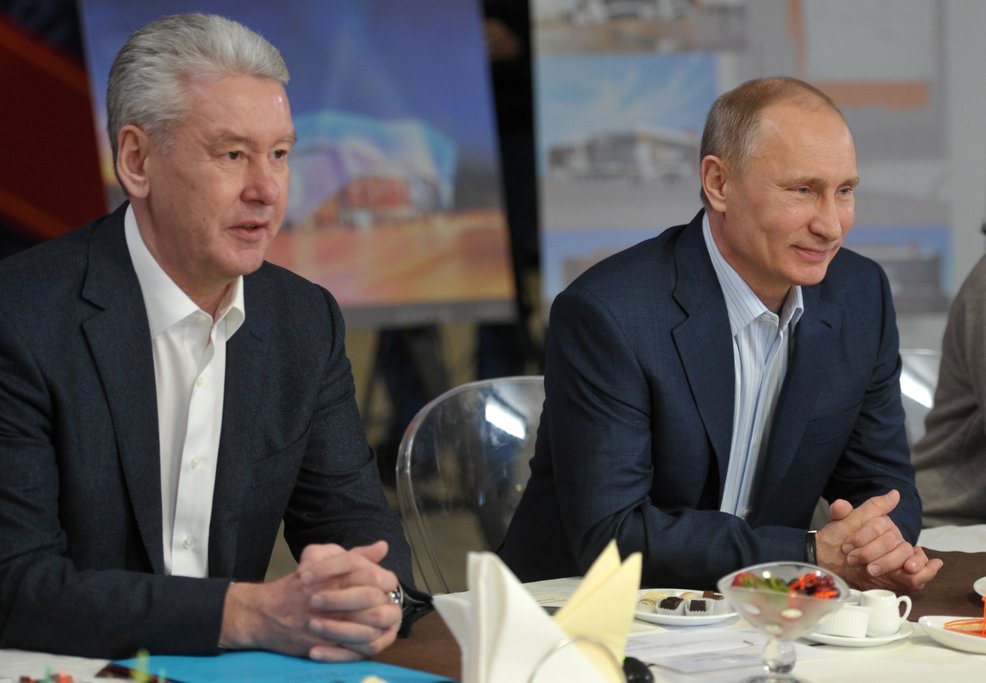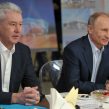
Xenophobia Becomes a Thorn for Putin’s Bubble
Publication: Eurasia Daily Monitor Volume: 10 Issue: 144
By:

Last week, Edward Snowden departed from the Sheremetyevo Airport—though not to a dubious “safe haven” like Bolivia but to an undisclosed location in Russia as his plea for a temporary asylum was granted. Russian authorities had obviously expected that his celebrity status would evaporate after five weeks of boring procrastination and the scandal with the United States would thus be downgraded to a minor quarrel (https://ria.ru/society/20130802/953970028.html). This did not quite come to pass, but the “go-slow” manner of handling this unwanted problem is typical for the political style of managing the complex crisis through which Putin’s regime tries to muddle instead of addressing its causes and facing the consequences. The Kremlin sticks to tired public relations exercises like portraying President Vladimir Putin with a 21-kilogram pike, which he allegedly caught on a fishing tour in Siberia (the fish looked more like 21 pounds), or showing him arriving on a hydro-plane to the Seliger youth camp, seeking to project the image of a relaxed August, free from the usual disasters.
The US administration is not impressed, and Russian experts are debating whether there is indeed a desire in Washington to punish Russia for the inevitable refusal to extradite Snowden (Moskovsky Komsomolets, August 3). The real issue, however, is not punishment but the lack of a meaningful agenda for the scheduled, but now doubtful, summit in Moscow before the G20 meeting in St. Petersburg on September 5–6. Putin has no feelings for US President Barack Obama, but the Russian leader needs the summit to happen in order to boost his deflated international prestige, which has presently hit a low even in Ukraine (https://newtimes.ru/articles/detail/69671/). Only a far-reaching initiative in arms control could rescue the summit, and the upcoming meeting in Washington of foreign and defense ministers in the “2+2” format this week (August 9) provides an opportunity for proving that Moscow is ready for reductions of nuclear arsenals (Nezavisimaya Gazeta, August 2). Putin was firmly set against strategic disarmament, and it would be a perfect irony if the “Snowden affair” compels him to make such a commitment.
He has, however, a far more pressing political problem on his plate, as the mayoral elections in Moscow are scheduled for September 8. His appointee Sergei Sobyanin is facing a determined challenge from charismatic opposition leader Alexei Navalny, who gained much public support because of the blatantly unjust but currently appealed verdict that condemned him to five years in prison for a fictitious crime (https://www.echo.msk.ru/programs/year2013/1126842-echo/). The authorities cannot assess the scale of this challenge because Moscow has a track record of voting against the Kremlin’s preferences and has developed a penchant for street demonstrations protesting rigged elections. Seeking to outdo Navalny in populism, Sobyanin unleashed a police offensive against illegal migrants in Moscow, targeting first of all the deeply criminalized food markets (Moskovskie Novosti, July 30). This “patriotic” campaign attempts to exploit resentment among the Muscovites against the massive inflow of guest workers and fan the fears of ethnic gangs gaining control over local businesses (https://www.levada.ru/17-07-2013/moskva-nakanune-vyborov-mera-polnoe-issledovanie).
Only the slimmest of boundaries distinguishes this political maneuvering from xenophobia, which manifests itself not only in attacks by skinheads but also in public indifference to slavery, into which thousands of labor migrants are forced. While the mainstream of this ugly alienation and aggressiveness is directed against the “uninvited guests” from Central Asia and the Caucasus, there is also a streak of more traditional anti-Semitism mixed with irritation over the pro-Western sentiments among the liberal intelligentsia. This attitude was on display in the court case against Ilya Faber, who moved from Moscow to become a teacher in a village school in Tver oblast and was accused of bribery on the flimsiest of evidence (Novaya Gazeta, August 1). The key argument of the prosecution was: “Could we believe that a man with a name like ‘Faber’ will help a village for free?” And he was duly condemned to seven years in prison (https://echo.msk.ru/blog/farberjr/1128726-echo/). The outrage against this draconian verdict resonates in Moscow with the indignation over the use of the legal system as an instrument of repressions against the political opposition, including Navalny.
Putin is worried about the machine of repression running out of control, so he expressed disapproval of the anti-migrant campaign in Moscow and ordered investigations into the connections between the criminal gangs controlling the food markets and police (https://grani.ru/opinion/skobov/m.217521.html). He cannot fail to see that the expulsion of guest workers goes cross-purpose with his policy of building the Eurasian Union with Kazakhstan and other states of Central Asia. It is also plainly clear that the police operations in Moscow against ethnic gangs from Dagestan and Chechnya add fuel to the smoldering civil war in the North Caucasus (https://www.gazeta.ru/comments/column/novoprudsky/5537529.shtml). Putin is also concerned that Sobyanin, by taking a firm stand against illegal migrants, could gain support among the Muscovites and grow into a powerful political figure in his own right (https://www.novayagazeta.ru/politics/59351.html). Moscow elections have thus turned into a political trap—a strong vote for Navalny, who keeps expanding his grass-roots campaign, will give a boost to the opposition, but a convincing victory for Sobyanin would make him an independent boss of the huge metropolis and a potential rival.
Putin lives in a cocoon of posh residencies and carefully filtered information, around which his lieutenants have created a bubble of Byzantine court, inflated by hyper-corruption and painted by TV propaganda. The appearance of a solid regime sitting on top of a vast bureaucratic pyramid does not correspond with the evidently chaotic decision-making, but foreign partners have to—and often are eager to—take the mix of obsessions, denials and caprices for true statesmanship. Entrenched regimes of this kind are prone to sudden collapse, which could amplify into state failure, so in Russia the widespread disgust with the ruling kleptocracy is blended with fears about the chaos of yet another revolution. The opposition is trying to deflate the bubble of Putin’s regime without triggering an explosion, but xenophobia grows into a thorn that could do just that. Appealing to the aggressive ethno-religious syndromes is a political weapon of last resort, and Putin is not ready to reach for it—but many of his subordinates are past caring.




